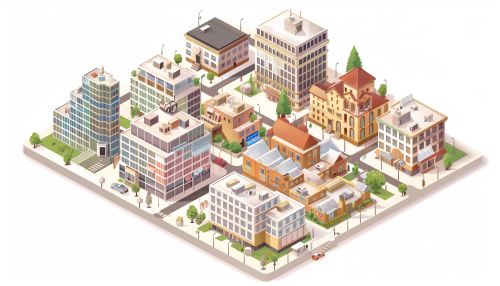Where Are You: Difference between revisions
(Created page with "== Introduction == The question "Where Are You?" can be approached from multiple perspectives, including geographical, psychological, philosophical, and technological viewpoints. This article aims to explore these dimensions comprehensively, providing a detailed examination of the various contexts in which this question can be posed and answered. == Geographical Perspective == === Global Positioning System (GPS) === The Global Positioning System|Global Positioning Sys...") |
No edit summary |
||
| (One intermediate revision by the same user not shown) | |||
| Line 12: | Line 12: | ||
[[Cartography|Cartography]] is the study and practice of making maps. It combines science, aesthetics, and technique to communicate spatial information effectively. Modern cartography involves the use of digital tools and software to create highly accurate and interactive maps. | [[Cartography|Cartography]] is the study and practice of making maps. It combines science, aesthetics, and technique to communicate spatial information effectively. Modern cartography involves the use of digital tools and software to create highly accurate and interactive maps. | ||
[[Image:Detail-92687.jpg|thumb|center|Cityscape with various buildings and streets, illustrating urban geography.|class=only_on_mobile]] | |||
[[Image:Detail-92688.jpg|thumb|center|Cityscape with various buildings and streets, illustrating urban geography.|class=only_on_desktop]] | |||
== Psychological Perspective == | == Psychological Perspective == | ||
Latest revision as of 15:39, 20 June 2024
Introduction
The question "Where Are You?" can be approached from multiple perspectives, including geographical, psychological, philosophical, and technological viewpoints. This article aims to explore these dimensions comprehensively, providing a detailed examination of the various contexts in which this question can be posed and answered.
Geographical Perspective
Global Positioning System (GPS)
The Global Positioning System (GPS) is a satellite-based navigation system that provides location and time information in all weather conditions, anywhere on or near the Earth. It is maintained by the United States government and is freely accessible to anyone with a GPS receiver. GPS technology has revolutionized the way we understand and navigate our physical world.
Geographical Information Systems (GIS)
Geographical Information Systems (GIS) are designed to capture, store, manipulate, analyze, manage, and present spatial or geographic data. GIS technology is used in various fields, including urban planning, environmental science, and resource management, to answer the question of "Where are you?" in a more analytical and data-driven manner.
Cartography
Cartography is the study and practice of making maps. It combines science, aesthetics, and technique to communicate spatial information effectively. Modern cartography involves the use of digital tools and software to create highly accurate and interactive maps.


Psychological Perspective
Cognitive Mapping
Cognitive mapping refers to the mental process by which individuals acquire, code, store, recall, and decode information about the relative locations and attributes of phenomena in their everyday spatial environment. This internal representation helps individuals navigate and understand their surroundings.
Sense of Place
The sense of place is a complex concept that encompasses the feelings, perceptions, and meanings that individuals or groups associate with a particular location. It is influenced by personal experiences, cultural background, and social interactions.
Spatial Awareness
Spatial awareness is the ability to be aware of oneself in space. It involves understanding the relationships between objects, including oneself, in a given area. This skill is crucial for everyday activities such as driving, playing sports, and even walking.
Philosophical Perspective
Existentialism
Existentialism is a philosophical theory that emphasizes individual existence, freedom, and choice. It posits that humans define their own meaning in life, and therefore, the question "Where are you?" can be interpreted as an inquiry into one's existential position in the world.
Phenomenology
Phenomenology is the philosophical study of the structures of experience and consciousness. It explores how individuals perceive and experience the world around them, providing a deeper understanding of the subjective aspect of "Where are you?"
Ontology
Ontology is the branch of metaphysics dealing with the nature of being. It examines the fundamental categories of existence and their relationships. In this context, "Where are you?" can be seen as a question about the nature of one's existence and place in the universe.
Technological Perspective
Internet Protocol (IP) Address
An Internet Protocol (IP) address is a numerical label assigned to each device connected to a computer network that uses the Internet Protocol for communication. It serves two main functions: host or network interface identification and location addressing. An IP address can provide information about the geographical location of a device.
Geolocation
Geolocation is the identification or estimation of the real-world geographic location of an object, such as a mobile phone or computer terminal. This process uses various data sources, including GPS, Wi-Fi, and IP addresses, to determine the location.
Augmented Reality (AR)
Augmented Reality (AR) is an interactive experience where real-world environments are enhanced by computer-generated perceptual information. AR technology can provide contextual information about one's surroundings, answering the question "Where are you?" in an immersive and interactive way.
